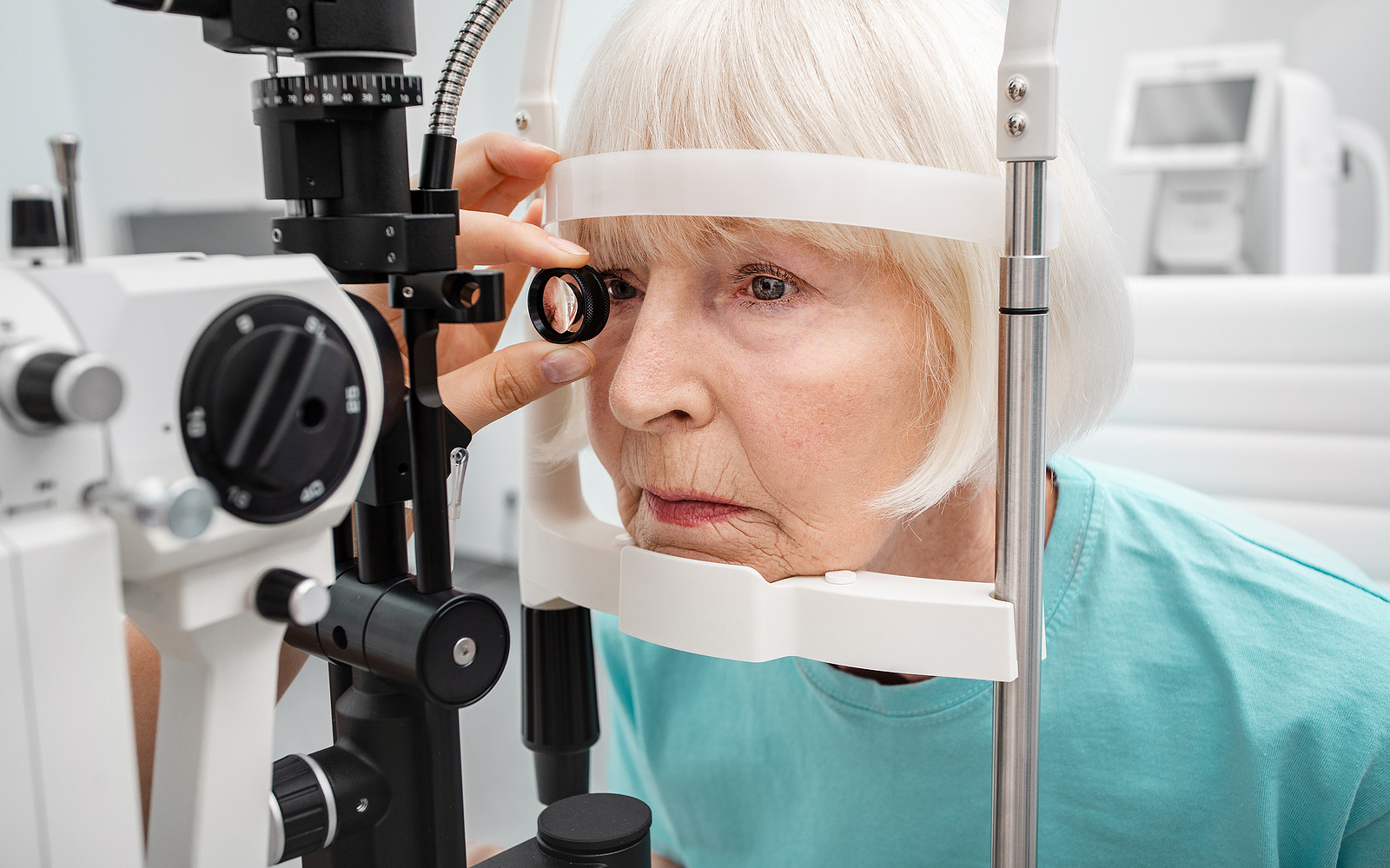How Sleep Affects Your Eye Health and Vision

May is Better Sleep Month, sponsored by the Better Sleep Council (BSC). Swagel Wootton Eye Institute joins thousands of other businesses and organizations across the country seeking to raise awareness of the importance of getting enough sleep every day. While you enter deep sleep, your body repairs organs, muscles and cells. Your blood circulates more white blood cells for crucial healing and your body gets critical rest. Sleep deprivation negatively impacts these processes and can also impact eye health.
Our eye care specialists in Mesa and Chandler have put together information about how lack of sleep affects your vision and how you can safeguard your eye health with the proper amount of rest.
How Much Sleep Do You Need?
If you suffer from chronic eye fatigue, more sleep may remedy your condition. Tired eyes require more rejuvenation and the amount of sleep you get really does affect your eye health. If you’re one of millions of sleep-deprived Americans, you could be subsisting on four to five hours of sleep a night. However, you need at least 6 to 8 hours of sleep for your body to function properly.
What Happens to My Eyes Due to Lack of Sleep?
Along with a possible caffeine addiction, the lack of sleep disrupts the renewal process for your eyes. A pervasive lack of sleep can cause the following problems:
- Blurry vision
- Dryness and irritation
- Bloodshot or red eye
- Moderate pain
- Swollen eyes
- Light sensitivity
- Eye spasms
Our eye care specialists in Mesa and Chandler can help you alleviate these symptoms. However, you need to get more sleep to prevent them altogether.
If you continually cheat your body of sleep, you can develop serious eye conditions such as:
- Chronic dry eye: During sleep, your eyes produce new tears that cleanse the eyes. If you don’t get enough rest, your eyes may not produce enough tears to keep your eyes clean and healthy. Our eyecare experts provide treatment for dry eyes and can give you some tips to ensure you get enough rest.
- Glaucoma: Sleep apnea often causes sleep deprivation, which may increase your risk of developing glaucoma. If you suffer from sleep apnea, your eyes may not get the oxygen they need. This can detrimentally impact the optic nerve and increase your chances of getting glaucoma. Learn more about the effects of glaucoma and possible treatment for this condition.
- Ischemic Optic Neuropathy: Lack of sleep prevents proper blood flow that renews your eyes each night. It can lead to sharp pain and blurry vision.
How Sleep Helps Your Eyes
You go through five stages of sleep. However, it’s during deep sleep or REM sleep that your body does a lot of the renewal and preparation work for the night. It takes 70 to 90 minutes to reach this level, so failing to get enough rest shortens the amount of time your eyes have to rejuvenate.
During deep sleep, your eyes get rid of old proteins and cells. This allows new cells to grow and develop. Your tear ducks clean and renew your eyes during deep sleep. Tired, dried-out eyes become more vulnerable to infection and other issues. Also, you really do need your beauty sleep to prevent bags and hollow spots under the eyes.
Tips to Improve Your Rest
Here are a few tips to help you overcome insomnia and get into the habit of prioritizing sleep:
- Cut back on caffeine.
- Meditate or practice breathing exercises when you’re ready to go to sleep.
- Develop a consistent sleep routine by waking up and going to bed at the same time every day.
- Don’t watch TV or work in bed. This trains your brain to start the sleep cycle as soon as you hit the pillow.
If you would like more suggestions for observing Better Sleep Month in May, we’d be glad to give you some ideas. Our team specializes in cataract and LASIK eye surgery in the greater Phoenix area, but we also provide comprehensive eye care for your entire family. Contact us today to make an appointment.
[DISPLAY_ULTIMATE_SOCIAL_ICONS]








